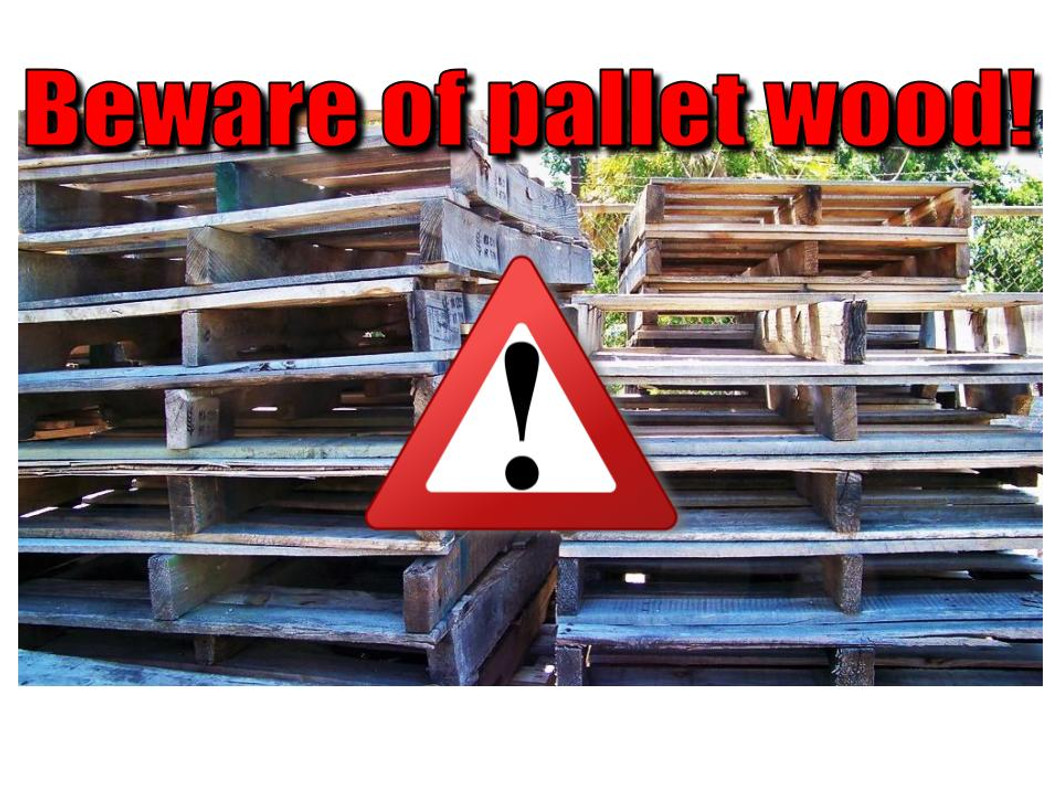Salvaging Pallet Wood: Beware of These Things
Reclaiming wood from old pallets to build cigar box guitars can be a satisfying endeavor. Giving new life to those cast-off hunks of wood is fun, but also involves some safety concerns.
In this post, I will address things to beware of before dismantling an old pallet and repurposing its parts for your next build.
Builder Beware
In all of the reading I've done about using pallet wood, I haven't come across any reports of people getting sick from it. But it's good to be at least aware of what might be in there.
*UPDATE*
Rob Wrobel, a longtime friend, and pillar in the cigar box guitar community, shared his health concerns about working exotic woods. He suffered an illness due to wood dust, even while wearing a mask. Although not specifically about pallet wood, Rob's public service announcement video at the end of this post is valuable to all builders.
What follows are some of the biggest concerns in salvaging pallet wood for building cigar box guitars.
Methyl Bromide and other pesticides
Older pallets may have been fumigated with methyl bromide to kill off wood-eating insects that may have made a home in them.
It's also possible that newer pallets may have been as well since the restrictions on the use of this toxic gas are exempted in the case of packing crates and pallets.
As a precaution, wear a respirator and do as much of the initial planing/sanding outside if possible.
I don't know how much of the gas would stay in the wood after being fumigated, or how long it would take to dissipate through regular use, etc.
Unknown spills and chemicals
By the time you get a pallet into your eager woodworking hands, there is no telling where it has been, what it has carried, and what it might have picked up along the way.
Any number of chemicals, pollutants, carcinogens, and other nasties might have soaked into it over the years.
If your pallet has noticeable stains, spill marks, or weird colors, you should probably pass it by.
Bugs
If your pallet has spent a lot of time outdoors, it might have various kinds of bugs in it.
Stay on the lookout!
Going through a planer or being vibrated by a sander would probably tick off a wood-boring wasp.
Splinters
There isn't much that is as splintery as a rough pallet board.
Unfortunately, sanding off the splinters means that you lose much of the attractive aged/discolored surface that is the most visible reminder of the wood's source.
I have found that a good heavy coat of a clear, hard finish like spar varnish can seal all of those splinters in, while not changing the appearance too much.
Other finishes like lacquer, shellac, and polyurethane might work well also - I intend to do some experiments with them soon.
Sealing the wood with a hard finish like these should also help "seal in" anything nasty that might have been in the wood, so it's worth considering.
Conclusion
Well, that's all I have for now. Personally, I am not too worried about using pallets.
Most of the items in our daily lives, from our homes to our cars to our workplaces, have various chemical hazards in them, a lot of which are worse than what'd you'd be exposed to in 99% of pallet wood.
Take whatever safety precautions you find appropriate, and don't waste too much time worrying about it.
*UPDATE*
Public Service Announcement from Rob Wrobel:
Beware of wood dust in your shop!
Recent Posts
-
2024 World's Wildest Electric Cigar Box Guitar Build-Off Winners!!!
C. B. Gitty Crafter Supply is proud to announce the winners of the 2024 "World's Wildest Electric Ci …31st Oct 2024 -
Improved C. B. Gitty: Easier Than Ever! (Work in Progress)
Ben “Gitty” has been cleaning house, making our website even easier find your favorite parts, kits a …7th Oct 2024 -
Build-Off Contest 2024: The World's Wildest ELECTRIC Cigar Box Guitar
CBGitty.com is looking for the WILDEST, LOUDEST & MOST DIABOLICAL electric cigar box guitar ever …6th Sep 2024




